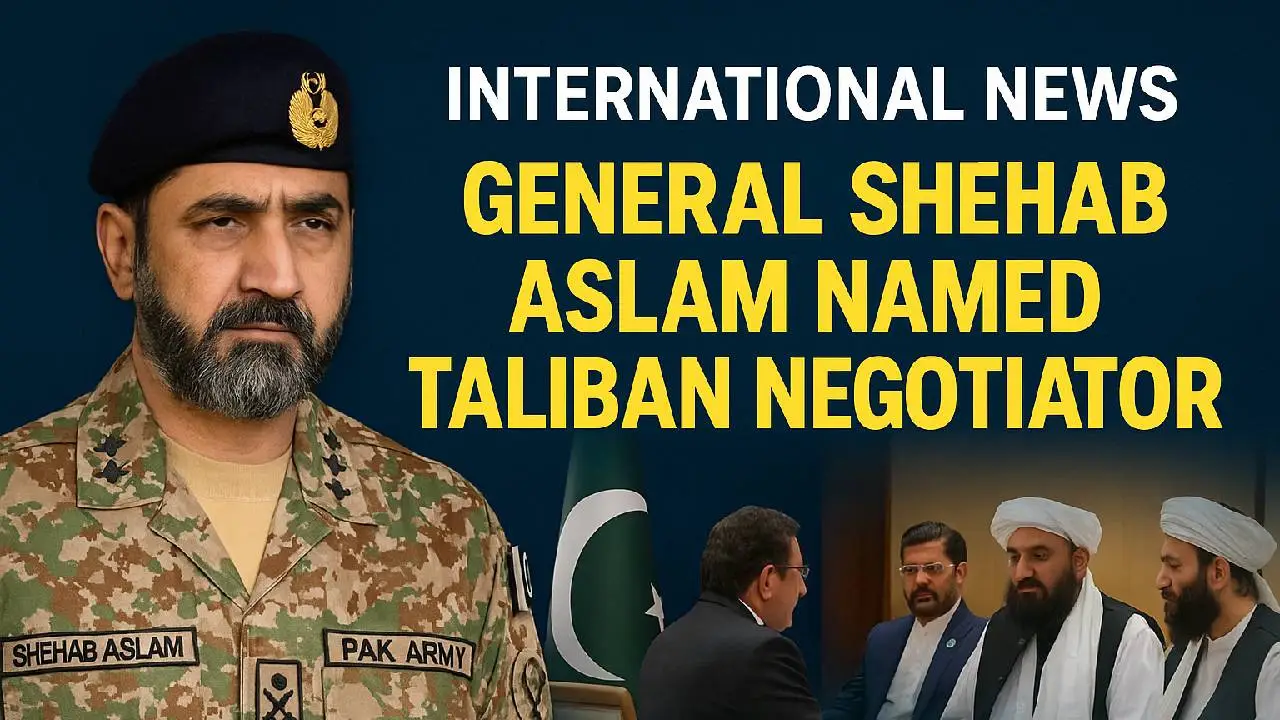
Pakistan (Credit: OpenAI)
International News: In a viral video, General Shehab Aslam’s name has surfaced again—this time not for a covert operation, but for a secret peace mission. The video alleges that the same officer who once planned attacks in India’s Pahalgam is now leading Pakistan’s talks with the Taliban. This claim has shaken regional watchers because it links a man once accused of terror plots with the job of restoring peace. The contradiction is raising global eyebrows. Experts say if this is true, Pakistan may be using the same hand for war and peace.
Reports say ISI’s leadership trusts Aslam for handling tough militant groups. His Special Operations background and deep connections in the tribal regions make him a natural fit for sensitive talks. But critics call this appointment “a fox guarding the henhouse.” Pakistan’s military has not denied the reports, nor has it confirmed them. The silence itself has added to the suspense. Observers believe Islamabad is testing global reaction before going public.
According to this video General Shehab Aslam who is the DG Spl Ops for ISI and is responsible for the Pahalgam Attacks is the negotiator for the talks between the Taliban and Pakistan.@ajaykraina pic.twitter.com/TFNlJN6kND
— Aadi Achint 🇮🇳 (@AadiAchint) October 30, 2025
Inside Afghan circles, Aslam’s name has caused discomfort. Some Taliban commanders reportedly questioned Pakistan’s choice, saying his “bloody past” might affect credibility. Others, however, welcomed him, describing him as “someone who understands the language of power.” Diplomats tracking the talks say this combination of fear and respect could either stabilize the talks—or destroy them from within.
The Pahalgam attack, in which innocent pilgrims were killed, remains one of the darkest chapters in recent memory. Linking that tragedy to an officer now representing Pakistan in negotiations sends a strong message about how Islamabad views accountability. India has long accused ISI of sheltering masterminds of cross-border terror. If Aslam is indeed involved in peace efforts, it may deepen distrust between Delhi and Islamabad further.
Many analysts think this move is not about peace—it’s about control. Pakistan has struggled to manage the TTP and Afghan Taliban factions after the US withdrawal. By appointing a battle-hardened insider like Aslam, Islamabad may be hoping to intimidate, not negotiate. The peace table, they say, is now just another battlefield where ISI wants the upper hand. This theory is gaining weight among regional experts.
Western diplomats are watching closely but staying quiet. For them, any dialogue is better than no dialogue—but the shadow of Aslam’s past makes cooperation risky. India, meanwhile, has demanded transparency in Pakistan’s dealings with the Taliban. Global think tanks are warning that allowing intelligence figures accused of violent acts to lead diplomacy could set a dangerous precedent for South Asia. The world is watching Pakistan’s next move.
If these claims are proven true, Pakistan will face tough questions from its own people and the international community. Can a man once accused of bloodshed truly broker peace? Or is this yet another covert operation under a new name? Either way, Shehab Aslam has become a symbol of Pakistan’s double-edged strategy—where war and negotiation often walk hand in hand. The coming days will reveal whether peace in the region is being negotiatedor manipulated.





Copyright © 2026 Top Indian News
